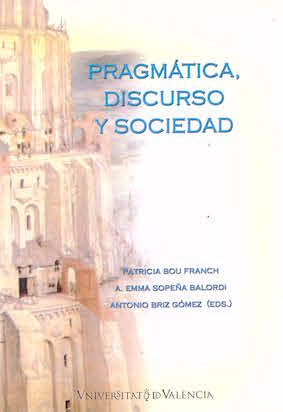Salutacions i variació textual
DOI:
https://doi.org/10.7203/qfilologia.12.4102Paraules clau:
salutacions, gènere, idiomaticitat, intercanvi comunicatiu, conversa Resum
Resum
En aquest article, analitzem les salutacions que apareixen en el corpus del projecte Tipotext , una recerca quantitativa i qualitativa basada en 107 textos de no-ficció que mostren diferents graus de presència de l’emissor i d’implicació en el missatge. Centrant-nos en tres variables extratextuals (tipus d’intercanvi, mode de producció i gestió textual), hem identificat i classificat les salutacions tenint en compte el gènere en què apareixen. Hem constatat que, a l’hora de triar l’ús d’una o altra forma de salutació, el tipus i el gènere textual són fonamentals, juntament amb les variables associades amb els interlocutors i la seua relació. Alhora, la salutació avança informació contextual del text en què apareix.
 Descàrregues
Descàrregues
Descàrregues
Com citar
-
Resum368
-
PDF (Español)819
Número
Secció
Llicència
 Este obra está bajo una licencia de Creative Commons Reconocimiento-NoComercial-SinObraDerivada 4.0 Internacional.
Este obra está bajo una licencia de Creative Commons Reconocimiento-NoComercial-SinObraDerivada 4.0 Internacional.
Tots els documents inclosos a OJS són d'accés lliure i propietat dels seus autors i/o institucions editores, i per tant, qualsevol acte de reproducció, comercialització, comunicació pública o transformació total o parcial necessita el consentiment exprés i escrit d'aquests.
Authors who publish with this journal agree to the following terms:
- Authors retain copyright and grant the journal right of first publication with the work simultaneously licensed under a Creative Commons Attribution License that allows others to share the work with an acknowledgement of the work's authorship and initial publication in this journal.
- Authors are able to enter into separate, additional contractual arrangements for the non-exclusive distribution of the journal's published version of the work (e.g., post it to an institutional repository or publish it in a book), with an acknowledgement of its initial publication in this journal.
- Authors are permitted and encouraged to post their work online (e.g., in institutional repositories or on their website) prior to and during the submission process, as it can lead to productive exchanges, as well as earlier and greater citation of published work (See The Effect of Open Access).



